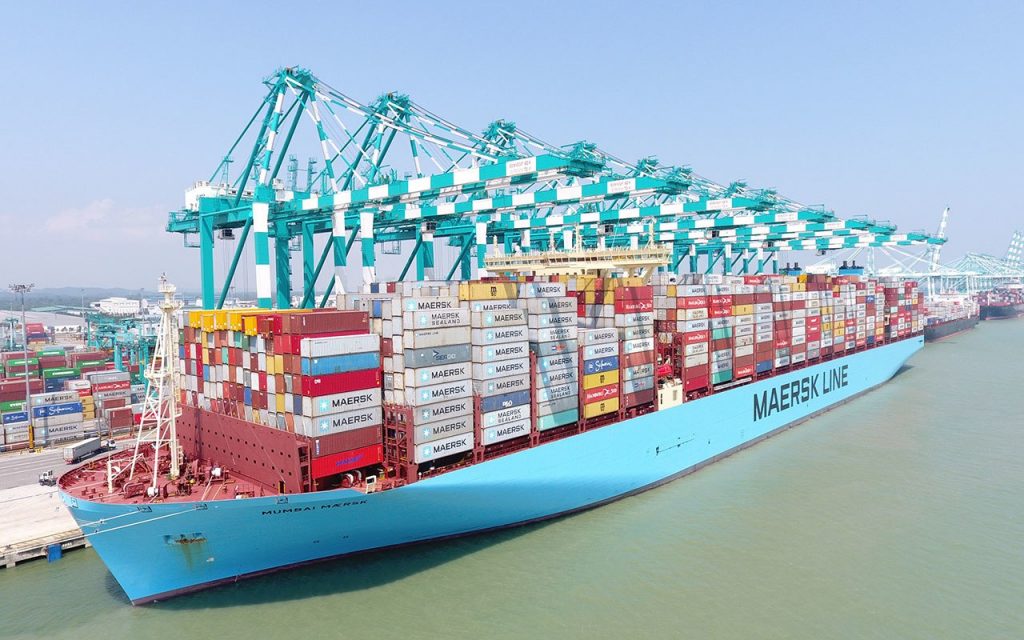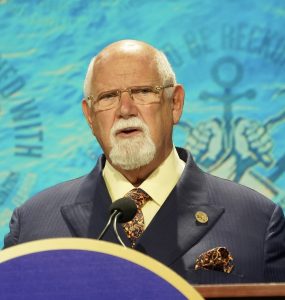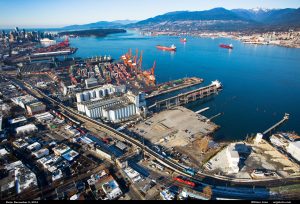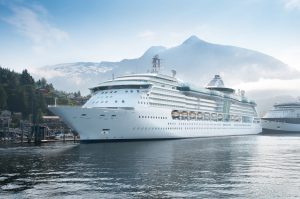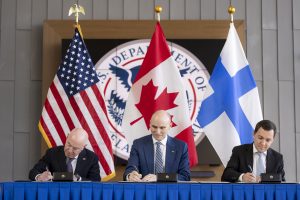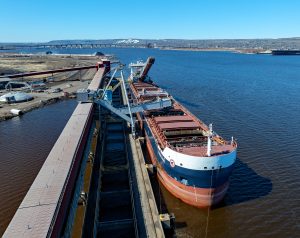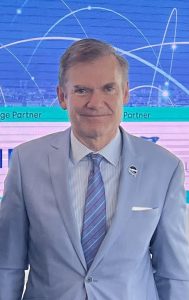Copenhagen, Denmark – Vincent Clerc, A.P. Moller – Maersk’s CEO of Ocean & Logistics spoke at the JOC Transpacific Maritime Conference – North America’s largest (virtual) customer and industry event – To set the context of supply chain disruption for customers and three themes for improvement.
“The threat of supply chain disruption is an industry constant, said Mr. Clerc addressing the virtual event from his office in Copenhagen, Denmark. According to a survey done by the Economist Intelligence Unit, 94% of US retailers say that their supply chains were significantly impacted by the pandemic. “The pandemic has tested every supply chain and the test is still ongoing,” he added.
Mr. Clerc cited three key themes requiring attention for the future: The potential of digitization, the power of integrated solutions and decarbonizing logistics.
Digitization: Supply chains are struggling with fragmentation of data, low visibility and low levels of collaboration between partners because the industry is behind the digitization curve. The consequences of being behind are costly – especially when there are sharp shifts in consumer demand as 2020 showed.
Dealing with the challenges, companies across the globe have taken a fast track to adopting new technology to simplify and connect their supply chains. The combination of big data application and AI algorithms makes all aspects of the supply more accurate and efficient.
Integrated solutions: Many supply chains have, over time, been increasingly fragmented into a complex network of suppliers segmented across products to preserve procurement power. The cycle of consolidation, shipment, deconsolidation and distribution – if split between different vendors is not optimal for connectivity due to the inherent changes that occur. The total outcome amounting to less value than the sum of the parts. This was the case even before COVID-19, and it was certainly the case in 2020.
“As resilience and flexibility have become key, these fragmented set-ups have proven to be increasingly clumsy in their ability to orchestrate, and equally ineffective and costly to cope with demand shifts,” commented Mr. Clerc. “It is clear that there is a need for a strong and experienced logistics partner who translates strategy into tangible outcomes and can take accountability for these outcomes.»
Decarbonizing logistics: Mr. Clerc also cited the importance of working with industry partners and customers to plan and develop supply chains in a more sustainable way.
Maersk is accelerating efforts to decarbonize marine operations with the launch of the world’s first carbon-neutral liner vessel in 2023 – seven years ahead of the 2030 initial ambition. All future Maersk-owned newbuildings will have dual fuel technology installed, enabling either carbon neutral operations or operation on standard very low sulphur fuel oil (VLSFO).
Maersk will continue to explore several carbon neutral fuel pathways and expects multiple solutions to exist in the future. Methanol, ethanol, alcohol-lignin blends and ammonia are the major candidates because of their potential to scale.
The technology is now available; securing a competitive global supply chain through the fuel value chain is the main challenge now and stakeholders must cooperate to meet the demand.
“On all three themes; digitization, integration of supply chains and decarbonization, I can only encourage everybody to have a thorough reflection and discussion with the right partners for your success, because disruption and change will come again,” Mr. Clerc advised.
Source: A.P. Moller Maersk
